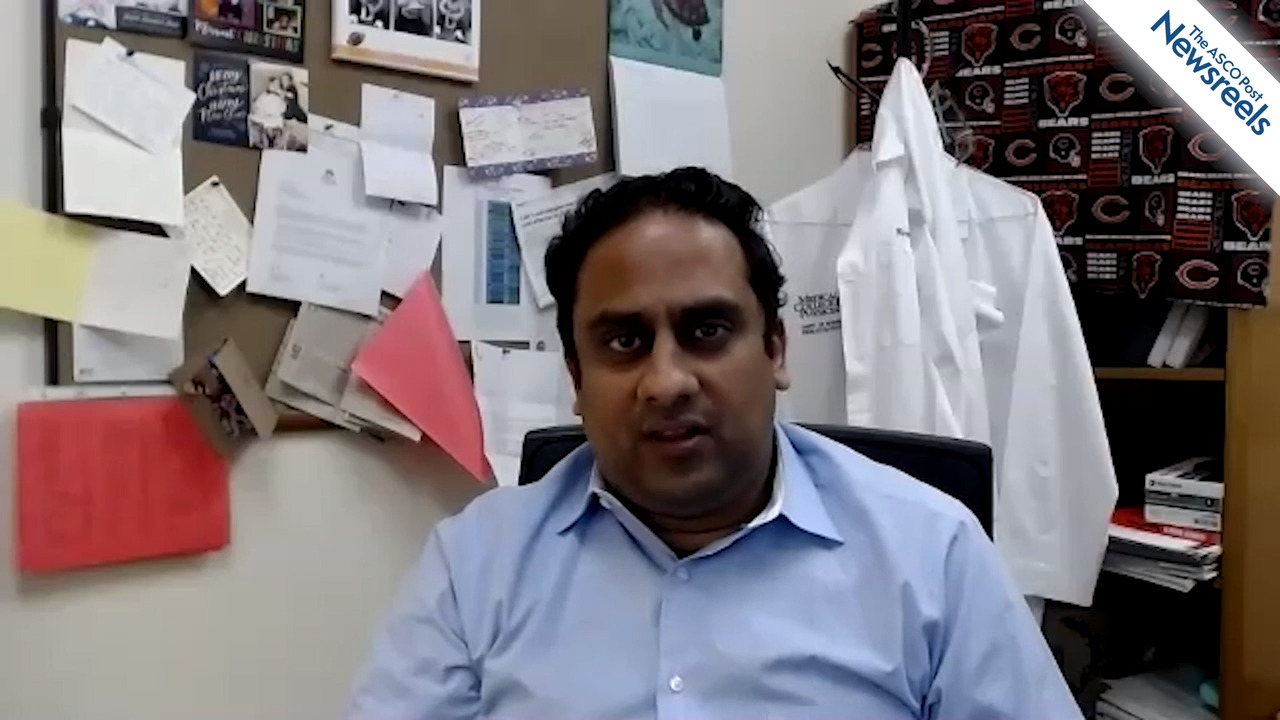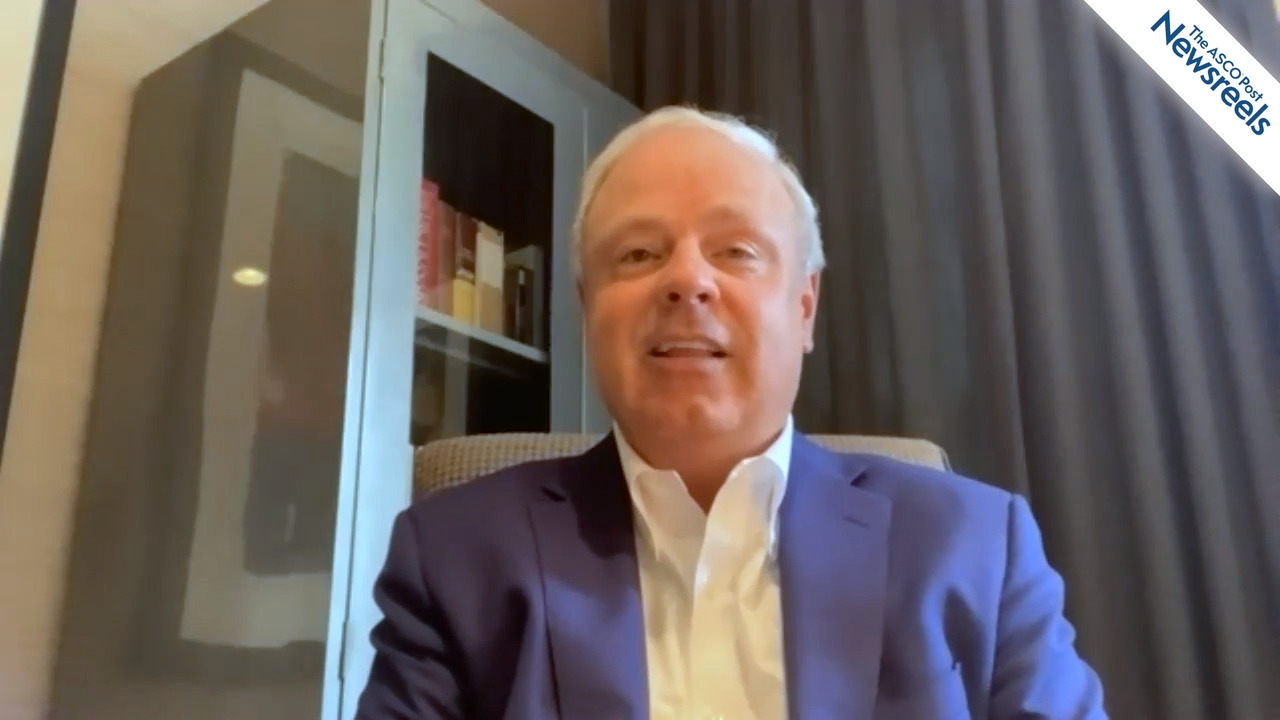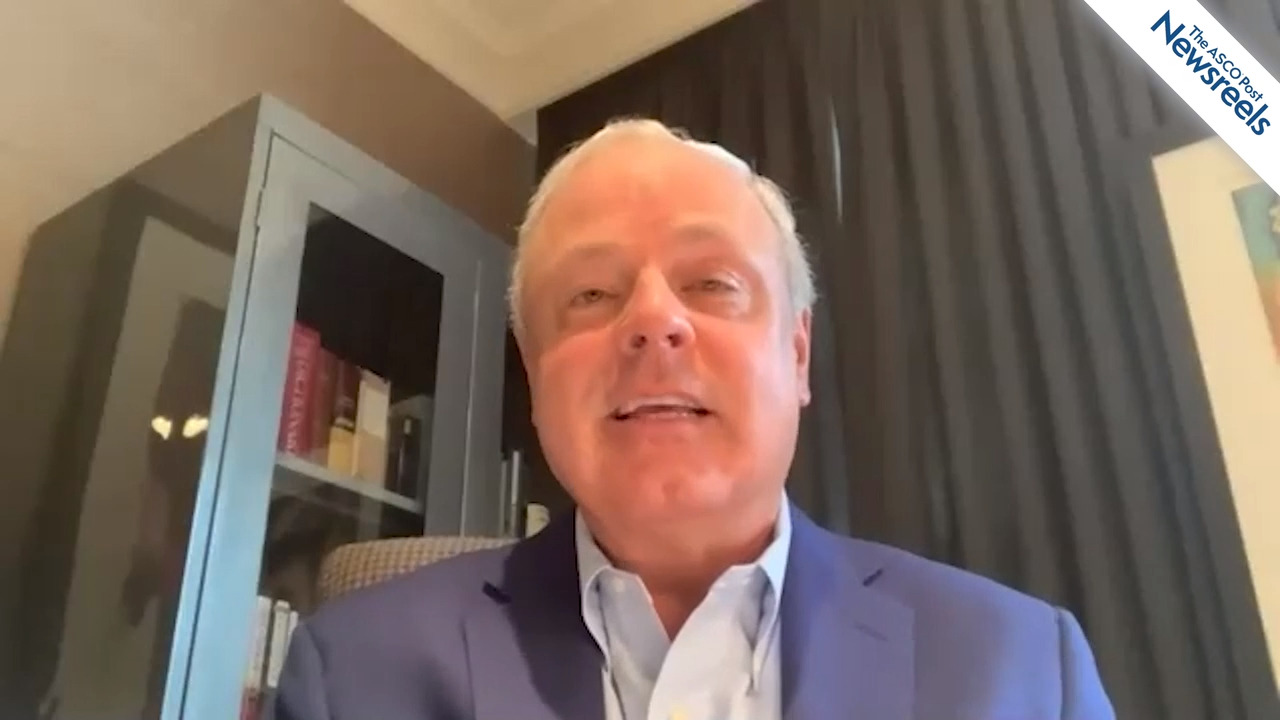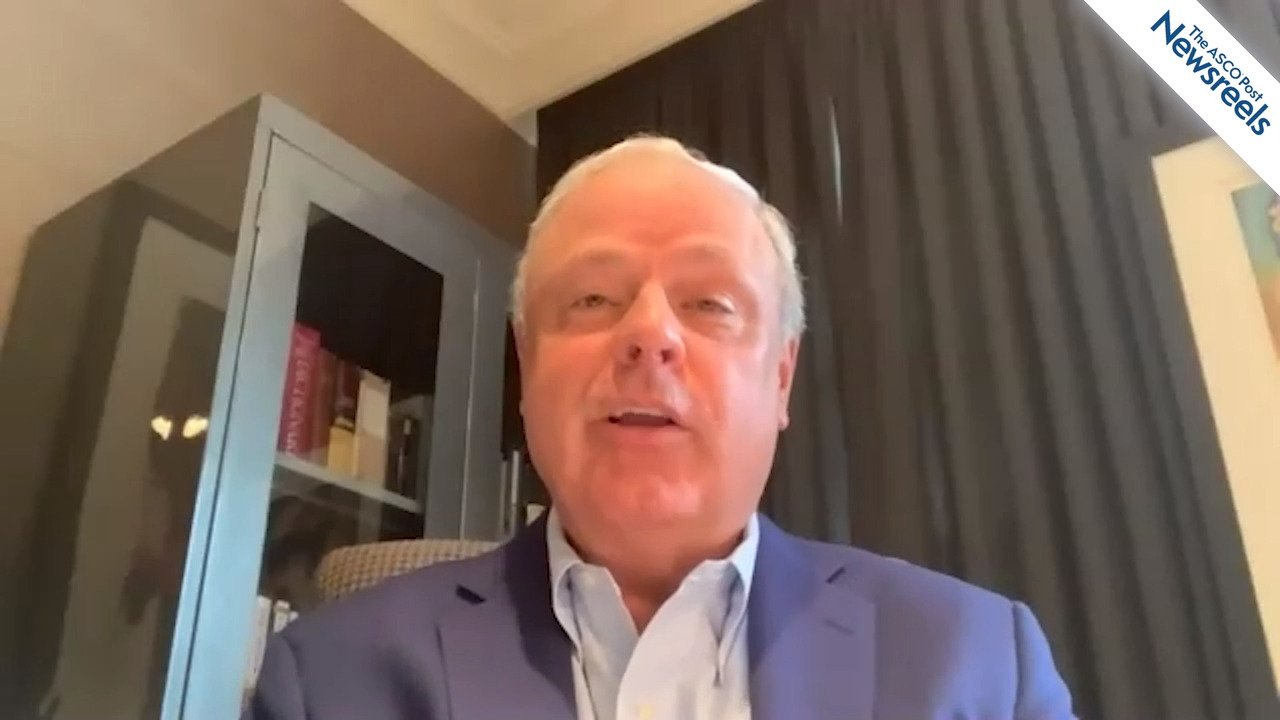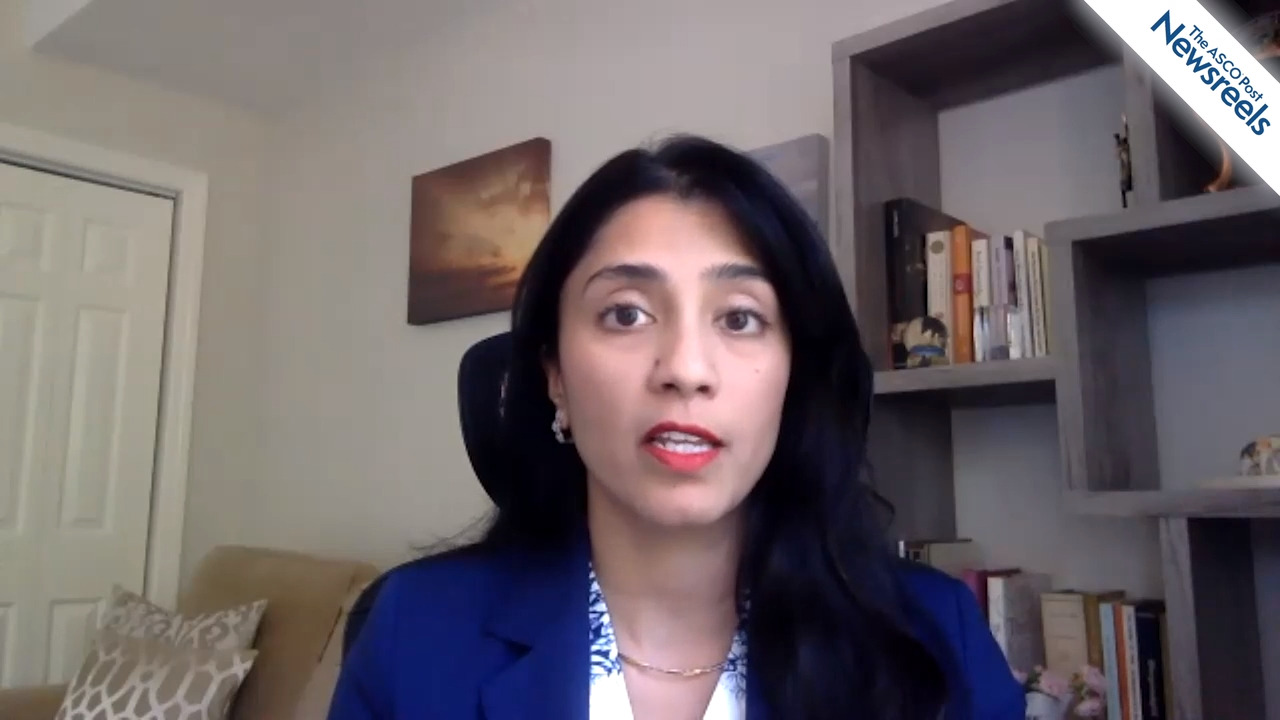David C. Fajgenbaum, MD, MBA, on Chasing His Cure: A Physician Is Battling His Disease and Beating the Odds
ASCO20 Virtual Scientific Program
David C. Fajgenbaum, MD, MBA, of the University of Pennsylvania, who trained as an oncologist, summarizes his opening lecture, a dramatic story of his battle against Castleman, a disease of the lymph nodes, his multiple near-death experiences, and the path that led him to develop a cooperative research effort making a difference for him and other patients with this idiopathic orphan illness.
The ASCO Post Staff
Nirav Niranjan Shah, MD, of the Medical College of Wisconsin, explores whether autologous transplantation, in patients with relapsed diffuse large B-cell lymphoma who achieve only a PET/CT-positive partial remission, is appropriate in the era of CAR T-cell therapy (Abstract 8000).
The ASCO Post Staff
Howard A. Burris III, MD, FACP, FASCO, Immediate Past President of ASCO and current Society Board Chair, talks about how the meeting went, with its record-breaking attendance and new format.
The ASCO Post Staff
Howard A. Burris III, MD, FACP, FASCO, talks about some of the reports of research developments he is looking forward to and how future conferences could incorporate virtual presentations.
The ASCO Post Staff
Howard A. Burris III, MD, FACP, FASCO, President of ASCO, talks about what to expect from this year’s ASCO20 Virtual Scientific Program and its many offerings.
The ASCO Post Staff
Lakshmi Nayak, MD, of Dana-Farber Cancer Institute, reviews two key abstracts on newly diagnosed primary central nervous system lymphoma and treatment with whole-brain radiotherapy, methotrexate, temozolomide, rituximab, procarbazine, vincristine, and cytarabine (Abstracts 2500 and 2501).
